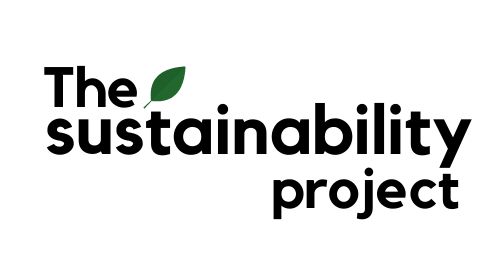My interest in palm oil and its effects on the environment started when I went vegan in 2014 (I am not vegan anymore but that’s a post for another day).
My interest then peaked in 2016 when I went on an Sumatra conservation trip to help plant fruit trees on where palm oil used to grow. That’s where they educate locals on the detrimental effects of palm oil on both the environment and wildlife (Specifically the Sumatran Orang Utans).
Do you know palm oil is estimated to be in half of all supermarket packaged products? Similar to soybean and corn oil, it is processed into many foods and consumer products.
And it is often a key ingredient in many foods and household items. In addition, the move towards biodiesel has also increased the demand for it.
Why is it extensively used in our everyday lives?
According to the Malaysian Palm Oil Board, palm oil has a balanced fatty acid composition in which the level of saturated fatty acids is almost equal to that of the unsaturated fatty acids.
Palmitic acid (44%-45%) and oleic acid (39%-40%) are the major component acids, with linoleic acid (10%-11%) and only a trace amount of linolenic acid. The low level of linoleic acid and the virtual absence of linolenic acid make the oil relatively stable to oxidative deterioration.
It also has a high smoke point of 245 degrees Celcius. In cooking, the smoke point of an oil or fat is the temperature at which, under defined conditions, enough volatile compounds emerge from the oil that a bluish smoke becomes clearly visible.
At this temperature, volatile compounds such as water, free fatty acids and short-chain degradation products of oxidation come up from the oil.
Basically in layman’s term, it does not cause food to spoil easily. It is also ideal for frying and cooking food without having any toxic compounds leaching into the food. This explains why it is often preferred over other sources of oil.
Now, we have to ask ourselves- what are the environmental effects? Why is a sustainable option so important? Answering these questions will help us understand the need to raise awareness on the prevalence of unsustainable palm oil. Also, the effects it has and the steps we can take to move away from it.
Ruined land
Every hour, 300 football fields of precious remaining forest is being ploughed to the ground across South East Asia to make way for palm oil plantations. It is no doubt that it is destructive to the lungs of the earth – our rainforests.
In Africa, Asia, Latin America and Oceania, millions of acres of land are cleared to plant palm oil. In fact, our neighbours Malaysia and Indonesia produce 80% of the world’s palm oil. The primary technique used by them to clear forests is through the method of slash and burn.
Slash and burn is when acres of what was once trees are logged and set into flames. This causes not just air pollution, but also the loss of habitat for the animals once living in the forests. The large use of herbicides and fertilizers to facilitate the trees’ growth means that the forests become monoculture plantations.
Hence, losing all native flora and fauna. This not only drives known species of native plants to extinction, but we also lose all ability to fully study the native environment and flora and fauna of the rainforest that has been cleared.
Human-Wildlife Conflict
In the last 20 years, over 3.5 million hectares of Indonesian and Malaysian forest have been destroyed to make way for palm oil. Wildlife has been critically endangered largely due to planting palm trees, with the highest record of 6,000 lives lost in a year.
If you have yet watched the heartbreaking video of an orangutan trying to defend its home, check it out here.
This devastating impact also affects other unrecorded animals living in these rainforests. Imagine your home being burned away and replaced with palm oil trees. You lose not just your home, but also your source of food.
Many animals eventually die from starvation, if not from asphyxiation (suffocation from smoke) during the forest fires.
Sustainable Palm Oil (“SPO”)
According to PM Haze, sustainable palm oil companies use zero-burning methods to clear land, respect land rights and work with local communities to minimise the use of fire, protect forests and plant on existing open land.
Truth be told, it is very difficult to measure whether it is sustainable. This is because you cannot tell after it has been refined. Even companies that sell SPO admit that they cannot assure that the it is purely sustainable. However, it is still optimal to go for SPO.
What can we do?
In Singapore, Roundtable on Sustainable Palm Oil (RSPO) certification is the closest we have as a haze-free option. Hence, vegetable oil that only uses SPO will be ‘RSPO-certified.’
We are currently still slowly progressing towards a palm-oil free world. Try your best to switch to pure coconut or olive oil for cooking (please note that olive oil burns easily and is unsuitable for cooking at high heat). Also, check the ingredients of the products we buy – especially our soaps and beauty products and avoid those with palm oil.
While avoiding palm oil in food is difficult, it is easier to make that switch with beauty products. Look for products with other oil bases (coconut or jojoba) or simply ensure that SPO is used. Often, it will be clearly indicate on the label or packaging.
it is completely impossible to avoid palm oil. But, it is important to understand the problem and slowly reduce our use of products that contains it. By voting with our dollar, we are telling suppliers we do not want palm oil. Or that we only want SPO. This indeed will slowly drive the economic change needed to alleviate the problems that palm oil brings upon society.


Hi, just a question out of curiosity… wouldn’t switching to coconut oil or other alternative sources of oil only result in that alternative booming in demand and thus the cycle of logging-farming-environmental damage repeat itself? or is it that the negative effects of plant oil plantations so much more disastrous than those of its alternatives, that making the switch is more of a “choose the lesser of two evils” approach?
Avoiding palm oil is not the answer. In fact it will exacerbate deforestation globally as on average 5 times more land will be deforestated to obtain the same amount of vegetable oil. Just look at what is happening in Brazil Amazon. Millions of hectares of forest are being cleared to grow soya bean. In addition over the last 25 years more land are being converted for cattle farms for both milk and beef than for growing palm oil. There is a need for a holistic approach to researching the complex issues.
Who are those so desperate in discrediting palm oil? What is their mission? What do they intend to gain. Is this not a ploy and plot to promote order source of vegetables oil. How old is Palm oil existence in world? Why the so much noise and discrediting now? Hunnn Son of man.